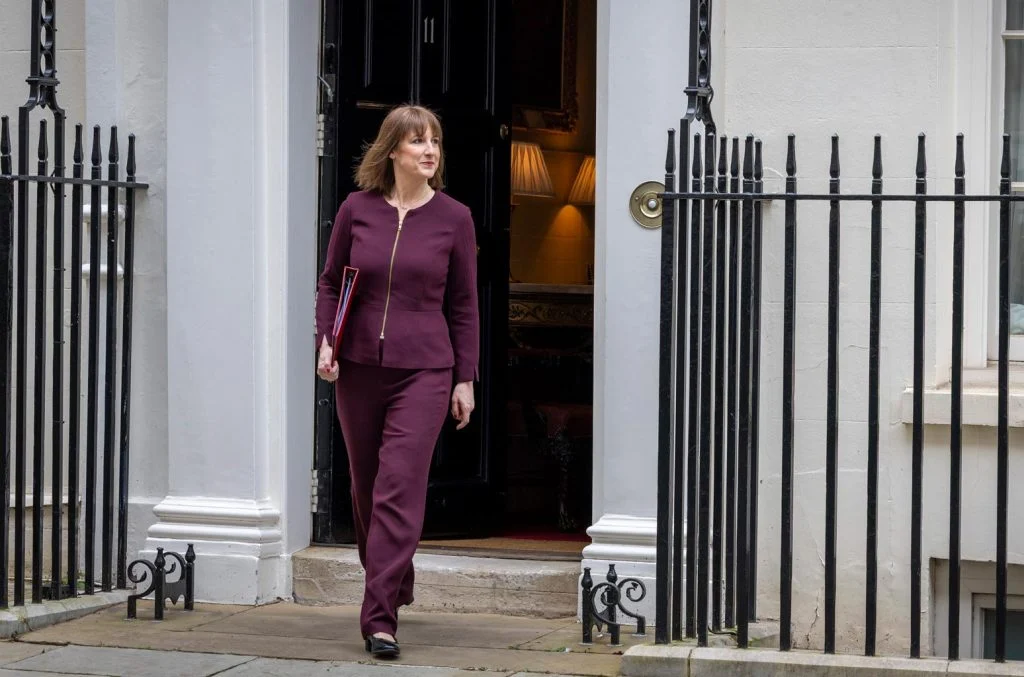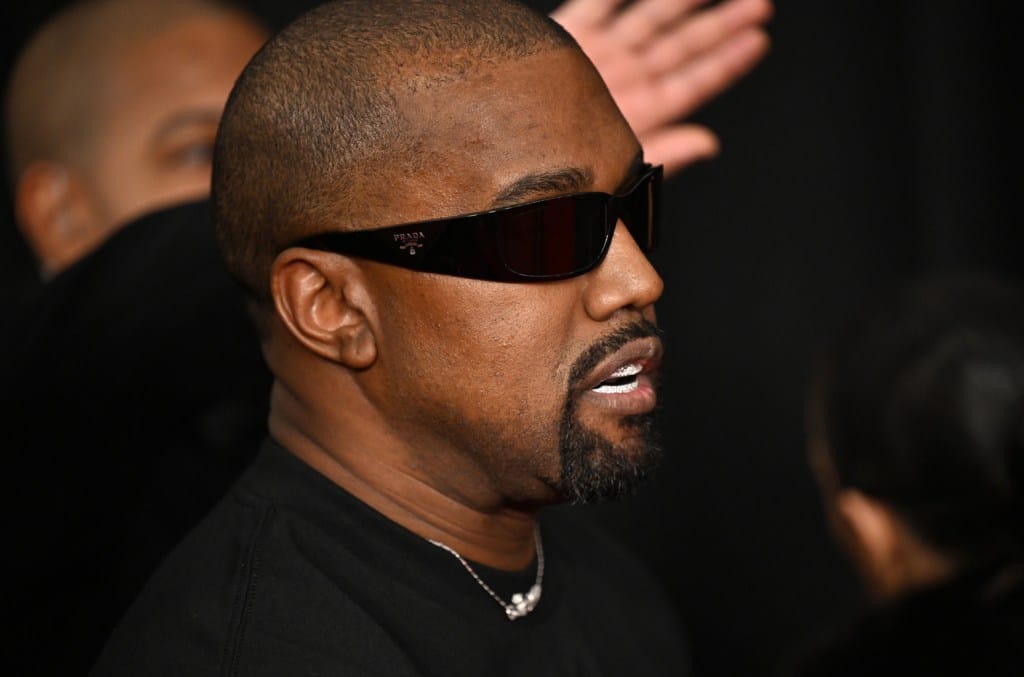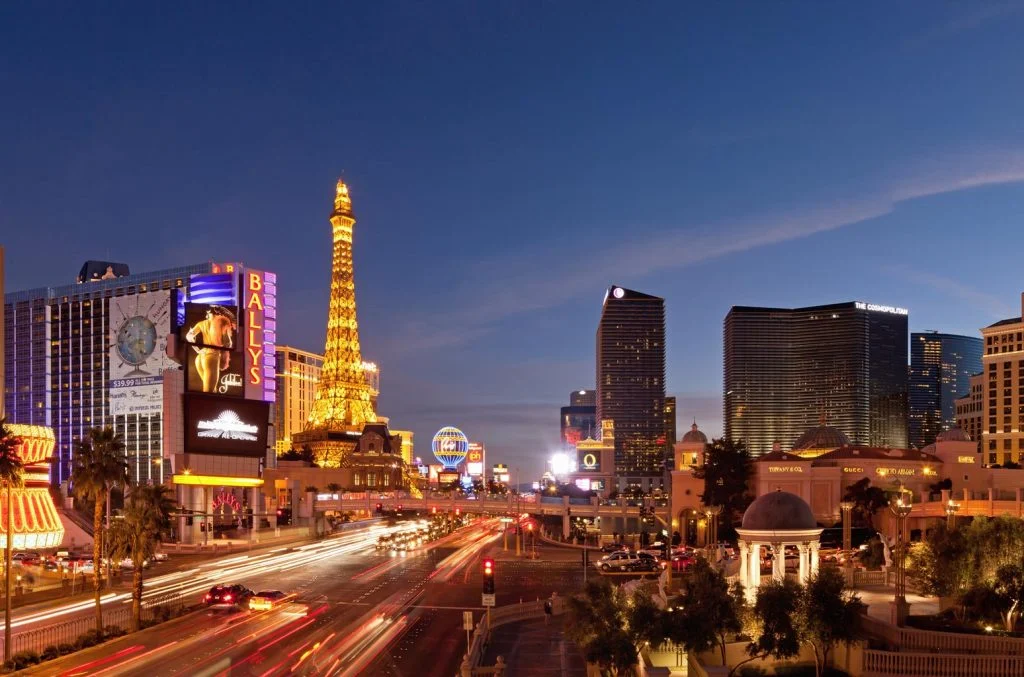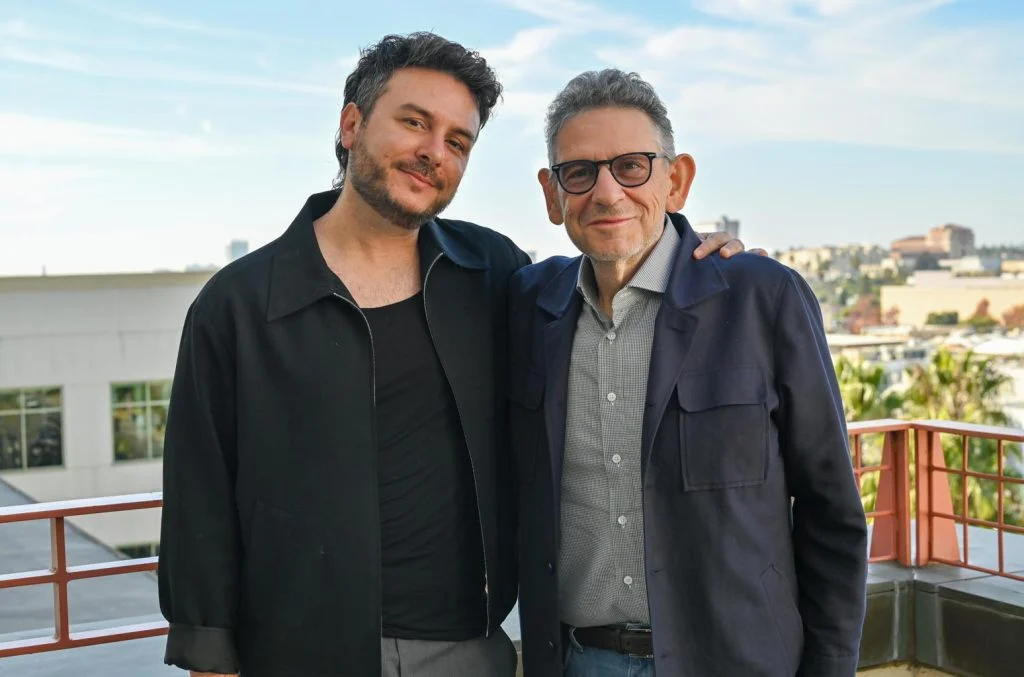Business
Page: 93
Latin music executive Angel Del Villar was convicted by a federal jury Thursday (March 27) on felony charges of doing business with a concert promoter linked to Mexican drug cartels, setting the stage for a potential decades-long prison sentence.
Jurors found the Del Records CEO guilty on 10 counts of violating the Foreign Narcotics Kingpin Designation Act, a federal law that bars U.S. residents from doing business with known drug traffickers, as well as one conspiracy charge, the U.S. Attorney’s Office in Los Angeles told Billboard on Thursday.
Prosecutors alleged that Del Villar repeatedly arranged concerts with Jesus Pérez Alvear, a Guadalajara-based promoter who allegedly had ties to Mexican cartels. At trial this week, regional Mexican superstar Gerardo Ortiz took the stand to testify against Del Villar, saying he had seen Pérez Alvear at the Del Records offices and had himself performed at one of the promoter’s concerts.
Trending on Billboard
As reported by Rolling Stone, attorneys for Del Villar argued during opening statements last week that he had been “manipulated” into working with Pérez Alvear by a “trusted” former employee named Brian Gutierrez, who they say assured him that it was legal. They argued that Gutierrez was a paid informant for the FBI who had helped the feds “manufacture a gotcha situation” to “take down” Del Villar.
After eight days of trial, those defense arguments clearly did not sway the jury, which handed down guilty verdicts against both Del Villar and his Del Entertainment Inc. Following the verdict, Del Villar will face sentencing in August; under the Foreign Narcotics Kingpin Designation Act, he could face a maximum sentence of 30 years in prison, though he could also receive far less than that.
Attorneys for Del Villar did not immediately return a request for comment.
Founded by Del Villar in 2008, Del Records later grew into a top record company for regional Mexican music. The label was home to música mexicana supergroup Eslabon Armado, whose global hit, “Ella Baila Sola” with Peso Pluma, became one of the biggest songs of 2023, as well as Lenin Ramirez and other chart-topping artists.
But in June 2022, Del Villar, 41, CFO Luca Scalisi, 56, and Del Records itself were all charged with conspiring to violate the Foreign Narcotics Kingpin Designation Act. Passed in 1999, the law allows the U.S. to impose targeted sanctions on foreign individuals involved in the illegal drug trade and ban U.S. residents from doing business with them.
The U.S. Treasury Department added Pérez Alvear to the sanctions list in 2018, claiming he and his company, Gallistica Diamante, had helped cartels “exploit the Mexican music industry to launder drug proceeds and glorify their criminal activities.” According to court records, he has since died.
Prosecutors said Del Villar and Scalisi used Pérez Alvear to arrange four Mexican concerts for an undisclosed Del Records artist, then accepted nearly $200,000 in payments from him, all while aware that he had been sanctioned. Charging documents cite a never-sent Del Records press release acknowledging that status, as well as private messages in which Scalisi noted that Pérez Alvear was “under homeland security watch” and Del Villar was directly told that Pérez Alvear was “a sanctioned US person.”
Following this month’s trial for Del Villar, Scalisi will face his own jury trial in July on similar charges.
With Spotify leading the way in subscriber counts, the number of global music subscribers grew 11.6% to 818.3 million in 2024, according to MIDiA Research’s music subscribers market shares Q4 2024 report. That was about the same number of subscribers added in 2023, but where those new subscribers originated continues to change.
“The continued fast rise of the Global South is the market-defining dynamic, pointing to a rebalancing of the global music industry,” Mark Mulligan, managing director/senior music industry analyst, said in a statement. MIDiA Research defines the Global South as regions other than Europe and North America, where subscription penetration rates and prices are the highest in the world. “Revenues still skew heavily to the West but user growth is now consistently coming from elsewhere.”
Trending on Billboard
Nearly four out of every five new subscribers added in 2024 came from the mid-tier and emerging markets in the Global South, accounting for 78.4% of the 84.8 million new subscriptions last year and nearly three of five global subscribers overall. In turn, the mature streaming markets in Europe and North America represented 41.0% of global subscribers, down from 52.3% in 2020 and 62.0% in 2015.
The Global South has relatively small but fast-growing regions, often places where streaming has enabled a legal music ecosystem to thrive where little to none existed a decade or two ago. As Billboard reported last week, Mexico replaced Australia as the No. 10 market in 2024, according to the IFPI. The Middle East-North Africa region grew 22.8% while Sub-Sahara Africa improved 22.6%. China, the No. 5 market, grew revenues by 9.6%.
Spotify had a 32.2% share of global subscribers and finished 2024 with 236 million global subscribers, according to its latest earnings release. Spotify had more than double the No. 2 company, China’s Tencent Music Entertainment, which had a 14.7% share based on 121 million subscribers. Tencent Music Entertainment operates Kugou Music, Kuwo Music and QQ Music.
Apple Music was No. 3 at 11.6%, which works out to 95 million subscribers. YouTube Music and Amazon Music were tied for fourth at 10.1%,, or 83 million subscribers, each. Neither Apple Music, YouTube Music nor Amazon Music publicly releases their subscriber counts. YouTube’s latest number of 125 million subscribers announced on March 5 includes both YouTube Music and YouTube Premium, the ad-free tier of the video streaming service.
Apple Music and Amazon Music each lost nearly a percentage point of market share and added fewer subscribers than in the previous year. Of all globally available platforms, YouTube Music was the only major streaming service to post accelerated subscriber growth compared to 2023. That tracks to comments made last year by Universal Music Group CFO Boyd Muir. While Spotify, YouTube [Music] and some regional and local platforms showed “healthy growth,” Muir said during the company’s July 24 earnings call, some other, unnamed platforms “have seen a slowdown in new subscriber additions.”
China’s NetEase Cloud Music was No. 6 at 6.7%, which works out to approximately 55 million subscribers. Russia’s Yandex was No. 7 with a 5.0% share equal to 41 million subscribers. All others—including TIDAL, Qobuz, SoundCloud, Deezer, Napster and South Korea’s Melon—had a combined 9.5% share, which equals roughly 78 million subscribers.
Ye (formerly Kanye West) is facing a lawsuit claiming he sampled a song by German singer-songwriter Alice Merton despite her refusal to license it — a move she says “shocked and humiliated” her because she’s the descendant of Holocaust survivors.
In a copyright case filed Monday (March 26) in federal court, attorneys for Merton say Ye prominently used clips from her 2022 track “Blindside” in his 2024 song “Gun to My Head” with Ty Dolla $ign and Kid Cudi, even after she had expressly refused to clear the sample.
When contacted by Ye’s reps last year, Merton says she and her publisher told them that they were denying him a license because “the artist’s values are contrary to our values” — a reference to the star’s antisemitic statements over the years.
Trending on Billboard
“Although defendants’ use of plaintiffs’ song could potentially bring in significant revenue, [she] was unwilling to compromise her personal beliefs and wanted not to be associated with Ye in any Manner,” her lawyers write. “Merton is a German resident who has close ties to the Holocaust through Jewish family members who survived its horrors, and as such feels closely connected to it.”
Merton’s new lawsuit is one of more than a dozen such cases filed against Ye during his career over claims of unlicensed sampling or interpolating. The controversial rapper has faced nine such infringement cases since 2019 alone, including a high-profile battle with the estate of Donna Summer that settled last year.
In Monday’s complaint, Merton says she is the “direct descendant of Holocaust survivors” — and that she was thus “understandably shocked and humiliated” when the song was released featuring his music: “Merton’s name was suddenly appearing everywhere, with claims that the song was a collaboration between YE, Cudi, and Merton.”
Making matters worse, Merton says that when the song was not included on Ye’s Vultures 2 album, fans blamed her and began harassing her to approve the sample.
“Plaintiff Merton began receiving death threats and abuse from Defendants’ fan base,” he lawyers write. “Defendant did nothing to stop the abuse, allowing his fans to intimidate and harass Plaintiff Merton.”
A spokesperson for Ye could not immediately be located for comment on Wednesday (March 26).

LONDON – Following the arrival of the U.K. government’s Spring Statement — an overview of the upcoming budgetary and spending plans — on Wednesday (Mar. 26), the U.K. creative industries are expressing concern over what the new budget could mean for artists, grassroots music venues and music education this year.
Since coming into power after winning an overwhelming majority with 412 elected MPs in last July’s General Election, Sir Keir Starmer’s Labour Party and Lisa Nandy — the U.K.’s culture, media and sport secretary — have run their campaign on promises of economic growth and a greater respect for the British arts. Last summer, they pledged a new National Music Education Network in their manifesto that would deliver increased resources for parents, teachers, and children. The creative industries were also named as a growth-driving pillar in the U.K.’s modern industrial strategy, with an aim to grow the sector by £50 billion by 2030.In November, Chancellor Rachel Reeves delivered the first Labour budget in 15 years, which raised some taxes — notably national insurance contributions for employers — that will allow the government to invest in the National Health Service (NHS), education and infrastructure. She also committed £6.7 billion ($8.6 billion) for education investment in 2025.
In the Spring Statement, however, which was delivered by Reeves from London this afternoon, a fresh set of cuts to government spending and public investment were outlined. She also told MPs that “the world has changed” since her first budget just under five months ago, and that those changes were to blame for the string of downgrades she put forward.
Trending on Billboard
When discussing departmental budgets, which dictate how much different parts of government can spend until 2030, Reeves said she aims to make the state “leaner and more agile.” Early reports suggested that day-to-day department spending was set to increase by an average of 1.3% per year above inflation; Reeves said it will rise by 1.2%. Furthermore, she confirmed that cuts will fall on departments outside of health, defense and education, whose departmental spending is not “protected,” she said.
“The Spring Statement makes it clear that most government departments, including the Department for Culture, Media and Sport, face real-terms cuts,” Roberto Neri, CEO of The Ivors Academy, tells Billboard U.K. “This will put further pressure on already stretched budgets at the BBC and Arts Council England, two of the most significant commissioners of new music.”
Years of underfunding from previous governments, tough financial conditions for artists and grassroots venues and complex issues surrounding generative artificial intelligence (AI) are all significant challenges for the sector. A hearing at The Houses of Parliament in October 2023, for example, found that 1,000 music teachers have been lost in the past decade, while a 2025 report by Music Mark found that Labour had inherited a shortfall in its music education budget over the next five years.A briefing published by U.K. Music in Sept. 2024, meanwhile, suggested that the international appetite for British music remains strong — with overall exports growing by 15% to £4.6 billion ($5.9 billion) last year — but that the health of the country’s music ecosystem must be looked at more closely, Neri posits.“Since the pandemic, the U.K.’s music industry has grown almost twice as fast as the wider economy — and we’re fighting to ensure songwriters and composers see more of the benefits,” Neri says. “As the government prioritises economic growth, it should back our world-leading songwriters and composers, the source of all value in music, and invest in the infrastructure they depend on.”
The lack of new policy around music and culture in the Spring Statement is also of concern to Ben Selway, managing director at Access Creative College (ACC), the U.K.’s largest independent training provider across creative fields. Former pupils at Access Creative’s seven national campuses include Ed Sheeran (now a patron of the ACC), Rita Ora and Jorja Douglas of BRIT-nominated girl group FLO.The future of music education in the U.K., Selway says, depends on “how effectively we are able to reverse the negative trends we’ve seen over the past decades, from the closure of grassroots music venues to a reduction in funding in real terms, and mitigate the risks that threaten the music industry, such as AI and copyright.”Selway also highlights the recent statement made by the Ed Sheeran Foundation, whose namesake made headlines earlier this week with the release of an open letter — signed by other A-listers including Sir Elton John and Harry Styles — calling upon the government to ensure music education remains high on the agenda. “This creative industry brings so much to our culture, our communities, our economy, our personal wellbeing, but music education has fallen through the gaps. That’s why I’m asking the government, collectively, to correct the mistakes of its past and to protect and grow this for generations to come,” Sheeran wrote.
Sophie Brownlee, external affairs manager at the Music Venue Trust (an organisation that supports the grassroots music scene) told Billboard U.K. that “the chancellor, treasury and DCMS have all the facts and data they need to know how to reverse the decline in access to live music and culture in our communities.” She added: “For the chancellor to choose, once again, not to act on this opportunity will not generate growth or meet the Government’s wider ambitions for the creative industries. Instead, it will see more grassroots music venues close, many in already deprived communities, further jobs lost, and the continuation of undervaluing local culture in the U.K.”Though Reeves announced plans to invest more in AI technologies across the civil service and defense sectors, her statement didn’t broach the government’s 10-week consultation, which took place in late 2024, on whether copyrighted content, including music, can lawfully be used by developers to train generative AI models.In recent months, the AI question has become a highly debated talking point among the industry, proving controversial among creatives and copyright holders. The government’s resulting report said an “opt out” approach would give rights holders a greater ability to license the use of their content, but those plans are yet to be confirmed.Tom Kiehl of U.K. Music argues this is not a time to become complacent. “The chancellor has talked again about her strategy for economic growth and some of the potential benefits of AI,” he says. “However, there was nothing in her statement about the huge damage that would be caused to the music industry by government plans to give AI firms unfettered access to music under sweeping changes to copyright law. The proposals would be a disaster for the U.K.’s £7.6 billion music industry.
“We need an urgent rethink from the Government and the Chancellor over those plans,” Kiehl continued, “which would allow firms to train their AI models on British music without having to pay or seek permission from the people who created the work or own the rights.”
Grammy-nominated artist mgk (formerly known as Machine Gun Kelly) has signed with WME for representation worldwide. The global touring artist and actor (real name Colson Baker) was previously represented by UTA. mgk has notched 19 Hot 100 hits including No. 4 entry “Bad Things” with Camila Cabello in 2017, 2021’s “My Ex’s Best Friend” with […]
“We’ve been trying to spread our music from Japan to the world,” Lilas Ikuta, singer for the Tokyo-based duo YOASOBI, told the audience at a sold-out Peacock Theater show in Los Angeles during a break in the group’s frenetic, synth-driven pop show. Already stars in their home country, Ikuta, who goes by the stage name Ikura, and her bandmate, Ayase, are beginning to get serious help finding fans beyond their home turf.
YOASOBI’s appearance that night was part of a concerted effort to push Japanese pop music — J-pop — far beyond the island nation. The March 16 showcase — matsuri ’25: Japanese Music Experience LOS ANGELES, which also featured Ado and ATARASHII GAKKO! — is the creation of The Japan Culture and Entertainment Industry Promotion Association (CEIPA), an organization created by the five Japanese music industry organizations, along with Los Angeles-based promoter Goldenvoice. CEIPA was founded in 2023 by the Recording Industry of Japan (RIAJ), the Music Publishers Association of Japan (MPAJ), the Federation of Music Producers Japan (FMPJ), Japan Association of Music Enterprises (JAME) and All Japan Concert and Live Entertainment Promoters Conference (A.C.P.C.) An industry mixer and panel discussion before the concert was hosted by the Japan External Trade Organization (JETRO) and the Consulate-General of Japan in L.A.
The quest to take J-pop global also has the financial heft of Japan’s largest corporation. In February, CEIPA announced a partnership with Toyota and the launch The Music Way Project, an effort to bring Japanese music to a global audience. The Music Way Project will have overseas bases in L.A., London and Thailand to organize showcases in those regions. It will also help develop artists through a three-pronged approach that includes student seminars, in collaboration with Japanese universities; seminars for young music professionals; and a songwriting camp. Toyota’s “innovation and adventurous spirit,” said CEIPA executive director Taro Kumabe at the press conference, “aligns perfectly with our mission to take Japanese music further into the world.”
Trending on Billboard
The global success of South Korean music — K-pop — and the resulting growth of companies such as HYBE and SM Entertainment have people in Japan wondering why J-pop can’t be the next great music export. “There is a chance for Japan as well,” Tatsuya Nomura, board member of CEIPA and president of FMPJ, told Billboard through an interpreter. “You have to understand, K-pop music is based on ‘80s Japanese pop. So, as long as we strive forward, we can do it.”
Japan already has a presence in the U.S. mainstream through video games (Final Fantasy, Pokémon), anime (Spirited Away), fashion (Uniqlo), food (sushi) and martial arts (karate). But while K-pop songs and albums regularly appear at the top of Billboard’s U.S. charts, J-pop remains a niche. A few Japanese artists have made some headway. In 2019, pop trio Perfume became the first J-pop act to perform at Coachella. Babymetal, a heavy metal band fronted by three females, tours the U.S. regularly and has appeared at festivals such as Sick New World and Rock on the Range. YAOSOBI performed at Lollapalooza and Coachella in 2024 but didn’t build a U.S. tour around those appearances.
Successfully breaking J-pop in the U.S. and other foreign markets would provide a financial windfall for the Japanese music industry. While Japan was the second-largest recorded music market in 2024, according to the IFPI, it was just 23% the size of the U.S. And because streaming dominates in the U.S. — it accounted for 84% of 2024 revenue, according to the RIAA — there is a huge, internet-connected audience ready to push play on emerging trends. Last year, the global music market reached $29.6 billion, with $20.4 billion coming just from streaming.
South Korea’s early embrace of streaming helped K-pop find fans in the U.S. and elsewhere. With streaming starting to take off in Japan, Nomura believes the time is right for J-pop to look beyond its borders. “Up until now, the Japanese market was mainly focused on CD sales,” he says. “But after COVID happened, people started listening to music on a streaming service. That opened a new page for Japanese music outside of Japan.”
Japan’s government wants to give J-pop a push, too. Faced with decades of deflation and stagnant wages, it’s looking to its content industries to help lift wages and commodity prices. These grand ambitions were laid out in a 2024 report by Japan’s Ministry of Economy, Trade and Industry (METI) titled, “Grand Design and Action Plan for a New Form of Capitalism 2024,” which described the government’s dedication to increase exports of the country’s content — including music — to a world audience that’s easily reachable by digital distribution. The plan includes, among other things, education, assisting business development and using global platforms “to encourage the formation of local, dedicated fan communities.” Nomura said CEIPA does not receive any government funding.
Michael Africk, a former recording artist with songwriting and production credits on numerous hits in Japan, also believes that J-pop is ready for a bigger stage. Africk’s Handcraft Entertainment recently raised $1 million to help build a multi-faceted company that Africk says will encompass music, fashion, merchandise and cosmetics. The relatively small sum is just “a start,” he says, and the next funding round is already underway.
Africk sees South Korea’s success as a blueprint for how Japan can work in foreign markets and tailor its music to Westerners. K-pop “Westernized really well,” he says. “They understand the economics and the way business works over here. The Japanese struggle with that a bit.” After decades spent working on both sides of the Pacific, Africk believes his experience will help Handcraft bridge the business culture divide between the world’s two largest music markets.
For J-pop to cross over in the West, the artists and music will need to fit the tastes of listeners. Africk explains that J-pop that’s popular in Japan tends to have vocal sounds and chord changes that Western audiences aren’t used to hearing. He seeks out artists who cross cultures seamlessly, speak both Japanese and English perfectly, and have appeal in both Japan and English-speaking countries. While K-pop leans heavily toward ensembles, Handcraft, which is distributed by Virgin Music Group outside of Japan and B ZONE within Japan, has signed two individual artists, Anna Aya and Hana Kuro.
There were two other signs of Japan’s expansion this month. First, blackx, an Asian-focused music investment firm, and ASOBISYSTEM, a management and production company that represents more than 100 artists, formed a strategic partnership to build J-pop outside of Japan. The pairing is meant to provide artists with resources, help them connect with fans globally and create cross-industry collaborations. Then on Tuesday (March 25), Japanese music company Avex made a major move into the U.S. market by naming Brandon Silverstein, founder of S10 Entertainment, the CEO of its newly formed U.S. arm, Avex Music Group. As part of the deal, Avex acquired 100% of S10’s publishing division and added to its existing stake in the management business. The hiring and investment will help Avex break Japanese artists in global markets and position Avex “as a potent force in the international music landscape,” Avex CEO Katsumi Kuroiwa said in a statement.
The Japanese industry will make another push in May with the inaugural Music Awards Japan, an ambitious, two-day event that will name winners of 62 categories based on votes from more than 5,000 members of the Japanese music industry. Set for May 21 and 22 in Kyoto, the awards show will be broadcast in Japan by NHK and will be streamed globally by YouTube. Toyota is a top sponsor of the event.
“Beginning with matsuri ‘25 and the Music Awards Japan, we hope that these events will become the sort of conception or beginning to a lot of different Japanese music artists being able to create more, expand their expression and creativity, to share their love for music with different fans around the world,” CEIPA’s Nomura said during the press conference. “This is going to define the future of the Japanese music industry.”
SoundExchange has partnered with Music Nation Copyrights Management, a leading music rights organization in the United Arab Emirates, as part of new efforts to ensure fair compensation for sound recording owners, producers and artists when their music is publicly performed across the UAE’s music industry.
This collaboration, announced Wednesday (March 26), will enable Music Nation to leverage SoundExchange’s technology and data in order to collect and distribute neighboring rights royalties in the UAE. The UAE’s first comprehensive rights management system will streamline the collection of performance, mechanical and neighboring rights royalties, providing a single solution for music rightsholders, the companies said in a joint announcement.
Music Nation plays a key role in the UAE’s evolving copyright landscape by licensing the rights of authors, publishers, performers and sound recording owners. With partnerships like those with BMI and SoundExchange, Music Nation is advancing the country’s efforts to protect musical copyrights through a comprehensive licensing and royalty distribution infrastructure.
Trending on Billboard
The partnership builds on Music Nation’s existing collaboration with BMI, the U.S. performing rights organization, further ensuring that local and international artists, songwriters, publishers, and record labels are compensated for the use of their work in the UAE. The timing aligns with the region’s rapid music industry growth, as IFPI recently reported a 22.8% increase in recorded music revenue in MENA in 2024, marking it as the fastest-growing music market globally.
Rasha Khalifa Al Mubarak, chairwoman of Music Nation, expressed excitement about the partnership, saying “by comprehensively and accurately collecting and distributing neighboring rights royalties, Music Nation will help ensure the continued growth of the region’s vibrant music ecosystem.”
Michael Huppe, president and CEO of SoundExchange, added: “Our in-depth administration expertise, proven record on rate settings, and premiere distribution processes for international creators will provide capabilities to propel the emerging UAE market. SoundExchange is proud to partner with Music Nation on this exciting project, and to help the Emirati creator community realize the true power and value of their music.”
The Recording Academy’s MusiCares and mental health provider Amber Health are teaming up to look into the touring professionals’ well-being. The partnership will launch mental health study for touring professionals, entitled Headlining Mental Health: A Tour Study. Both artists and crews are encouraged to take part. The research will mark a pivotal step in addressing […]
Penske Media Corporation (PMC) is in talks to open a Rolling Stone Hotel and Casino in downtown Las Vegas, sources tell Billboard.
The potential property would open on the site of the Downtown Grand Hotel & Casino, which PMC (owner of Rolling Stone as well as brands including Billboard) is currently in talks to acquire from CIM Group, the sources say. As reported by Vital Vegas, which first reported the news of PMC’s possible acquisition, PMC is just one of several potential buyers for the property; suitors have also included John Unwin‘s Corvus Collective, which dropped out after failing to come up with the $30 million in cash needed to complete the purchase. Downtown Grand is currently managed by Fifth Street Gaming.
If talks are successful, the Rolling Stone Hotel and Casino could well be the future site of the Life Is Beautiful Music & Art Festival, which PMC acquired through Rolling Stone in 2022. As a PMC spokesperson told the Las Vegas Review-Journal in February, the festival “is in the process of making a long-term investment in Las Vegas real estate for the festival’s new home downtown.” A version of Life Is Beautiful, A Big Beautiful Block Party, was staged for two days and nights last September at the Plaza Hotel and Casino in downtown Vegas with headliners Peggy Gou, Justice, LCD Soundsystem, Jamie xx and Jungle.
While nothing is confirmed — sources say the due diligence process for PMC’s potential acquisition of the Downtown Hotel & Casino is underway — Rolling Stone and its sister brands have been looking to strategically invest in opportunities that create brand extensions. Indeed, licensing and experiential opportunities have been a major part of the brand strategy for PMC and Rolling Stone. On March 12, Rolling Stone opened Rolling Stone Presents: Amplified, The Immersive Rock Experience, a first-of-its-kind 360-degree immersive music history experience at Illuminarium Las Vegas at AREA15 that included more than 1,000 photographs, 200 videos and 1,300 Rolling Stone covers and featured more than 300 iconic artists.
Trending on Billboard
“While we do not comment on specific investment or acquisition details, Penske Media is always looking for strategic opportunities that meet the long-term goals of our brands,” said a spokesperson for Penske Media. “We are committed to growing our international and domestic footprints in both experiential and hospitality for Rolling Stone. As producers of over three hundred events annually across the portfolio, Las Vegas, like other entertainment centers, remains an important market for us.”
Rolling Stone is looking into several additional real estate opportunities around the world and will consider those that meet strategic long-term goals for the brand, sources say, with the Rolling Stone name being licensed for casinos and hotels, similar to Peter Morton‘s Hard Rock Cafe playbook.
PMC and its brands produce more than 300 live events per year and have several events planned in Las Vegas, including the 51st American Music Awards — part of PMC-owned Dick Clark Productions — which will return to the city on Monday, May 26. There is also talk of the 61st annual Academy of Country Music Awards moving to Vegas next year, sources say.
In 2023, Grammy-winning producer Daniel Nigro founded his independently-funded Amusement Records primarily as a home for a then-independent Chappell Roan to release the album they made together, The Rise and Fall of a Midwest Princess.
Roan at the time had been recently dropped by her former label, but as Nigro told Billboard when announcing Amusement: “I was so in love with everything that we were doing. I believe in [Chappell] so much that I was like, ‘Do I want this added stress in my life? Is it worth it? Yes.’”
And it sure was. Last August, almost one year after her debut album’s release, The Rise and Fall peaked at No. 2 on the Billboard 200. The following month, she scored her highest-charting Hot 100 hit with “Good Luck, Babe!” And this February, Roan won the Grammy for best new artist.
Trending on Billboard
Now, on Wednesday (March 26), Universal Music Group and Nigro announced an expanded partnership with Amusement following the knockout success of Roan and building on the producer’s long-term creative relationship with superstar Olivia Rodrigo (who is signed to UMG label Geffen/Interscope). Going forward, Amusement will operate as a label venture within UMG, allowing new signees to partner with any of UMG’s labels.
“Daniel embodies the type of creative brilliance and entrepreneurial spirit that is at the heart of UMG,” UMG chairman and CEO, Sir Lucian Grainge, said in a statement. “I can’t wait to hear the culture shaping music and artists [he] will bring next to our global family.”
Since Nigro founded Amusement, he and Roan have both celebrated new highs. The Rise and Fall of a Midwest Princess spawned six Hot 100 hits, including the top 10 smash “Pink Pony Club.” Meanwhile, Nigro earned his second Grammy for producer of the year at the 2025 ceremony for his work with Roan, Rodrigo and the soundtrack for The Hunger Games: The Ballad of Songbirds & Snakes. (His first win was for Rodrigo’s debut album Sour.)
“After 6 years of working almost exclusively with the various labels [and] artists under Universal, it made perfect sense to make the relationship more formal,” Nigro said in a statement. “I want Amusement Records to be a place where artists can feel comfortable growing and developing at their own pace but with all the real resources needed to thrive and succeed.”
“Also,” he added, “a place where I can have the freedom to help choose the right team each time for the artist. I know in my heart that the people at Universal understand this, and I am beyond excited about what’s to come.”

 State Champ Radio
State Champ Radio 









